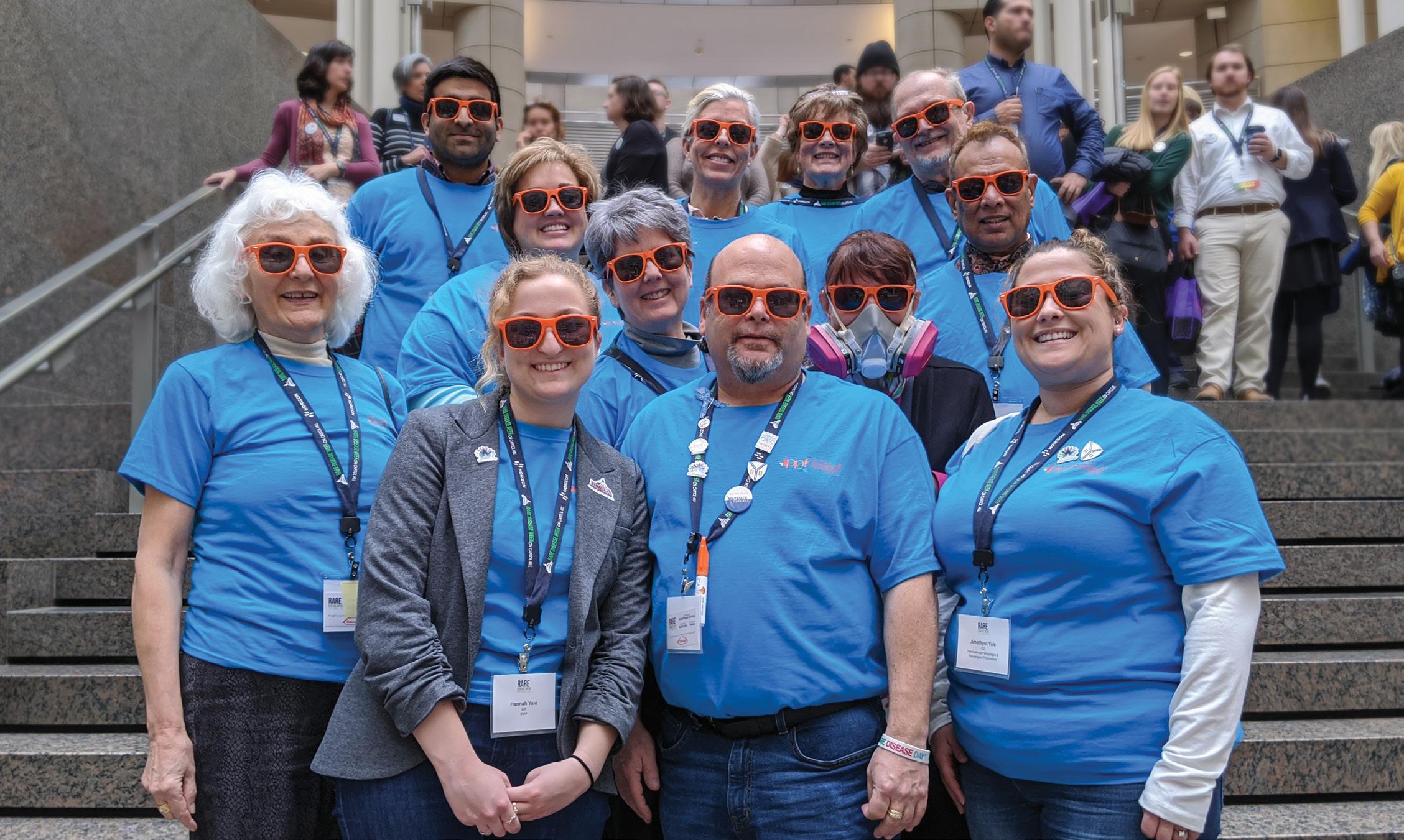
4 minute read
Coping Through COVID-19
The world has and continues to change due to the COVID-19 pandemic. Our altered lives are uncomfortable as we have gone from social beings to being sequestered in our homes. This situation is unpredictable, unpleasant, and uncontrollable. Information is ever-changing, and we are all feeling the stress.
As we monitor our physical health by taking our temperatures, watching for symptoms of COVID-19, and checking for lesions from pemphigus or pemphigoid, it is equally important to check in with ourselves about our mental health. We need to be kind to ourselves. No one has ever experienced this situation before.
Advertisement
It is also important to recognize that when we feel worried, we may not process information in the same way we did prior to the pandemic. We may develop biased thinking when we are anxious, and it's possible to have selective attention and lack of concentration. In my own experience, my way of thinking becomes very black-and-white. I jump to conclusions easily, and I forget about the significance of gray areas.
Our mental health can physically impact our bodies as well. Recently, I have often felt tired or fatigued to the point that naps are essential for my survival and wellbeing. There may be days of inactivity or the inability to get out of bed. Stress can also affect our quality of sleep or digestive systems.
Behaviors may be changing, too. It’s easy to find yourself more disorganized and lacking structure throughout the day. You might be more impulsive than usual. Comfort eating, excessive drinking, or smoking can all be symptoms of stress response.
It’s important to be able to recognize these symptoms in ourselves so we can navigate ways to manage our anxiety. Here are some tips to manage your physical and mental health during the COVID-19 pandemic.
Create Structure
Decide on a daily routine and try to stick to it. It may be helpful to plan the night before and set alarms for waking up in the morning or completing tasks. When things feel uncontrollable, it’s important to focus on what we can control.
Take a Break
The news and social media can quickly become overwhelming. A constant stream of upsetting information can be harmful, and it’s okay to take a step back.
Get Dressed
Get up, get dressed, and get moving. The simple task of getting dressed can be an accomplishment. It can also help us get our bodies ready to exercise and move.
Set Daily Goals
Set a goal of something you want to accomplish each day, and do it! Something as simple as making your bed in the morning can set your day up for success and help you to accomplish other tasks as well.
Stay In Touch
Reaching out to friends and family can provide a sense of community while we are social distancing from one another. There are many ways to stay in touch virtually through things like Skype, FaceTime, texting, calling, or social media. It’s also important to stay in touch with healthcare providers and to let them know if your health changes due to flares or symptoms of COVID-19.
Use Gratitude
Try focusing on three things that you are thankful for each day. This can help support our wellbeing and set a positive tone for the day. Identifying what you are thankful for before going to bed at night may bring peace and positivity to the next day.
Write
This is a remarkable time in history. Writing can help us remember that we survived a pandemic while living with a rare disease. It also helps keep track of the positive things we’ve done to take care of ourselves.
Use Distractions
Distracting ourselves and staying busy with hobbies, work, or activities with family members can interrupt negative thoughts. It may help to focus on the positive things we can control each day.
Allow Space for Yourself
Try not to be too hard on yourself for how you’re feeling or coping during this time. It may be too difficult to be as productive or positive as usual. It’s ok to take things one day at a time.
Speak With a Professional
When we have a flare we see our doctors. When our mental health is suffering, it’s important to have an open mind about seeing a mental health specialist to help us regain our stability.
Whether you are experiencing active P/P, in remission, or still taking medications to control your disease, the IPPF recognizes that this is a time of uncertainty. What is certain is that the IPPF is here to support you. We are increasing the number of Patient Education Series webinars, peer health coaches are available to share their experiences, and we are looking into ways to connect more closely with you. There are definitely challenges right now, but we are in this together and we will get through it.
Becky Strong is the IPPF Outreach Director. Shewas diagnosed with PV in 2010 and is currently inremission. She lives in Michigan with her family.









